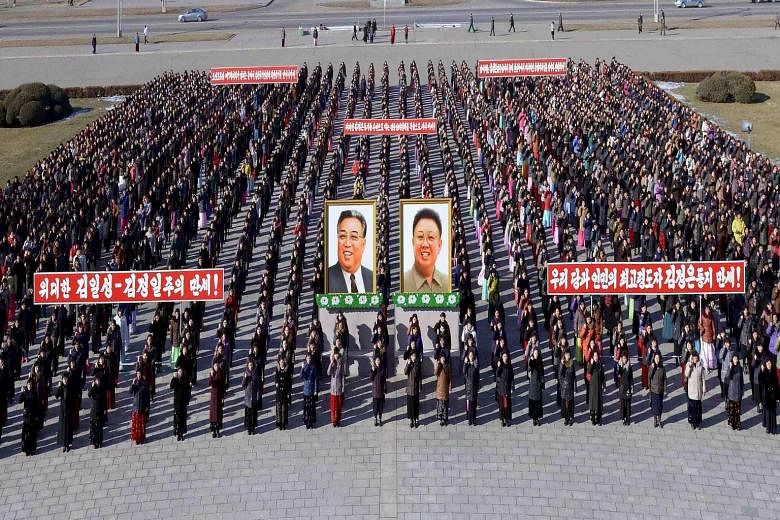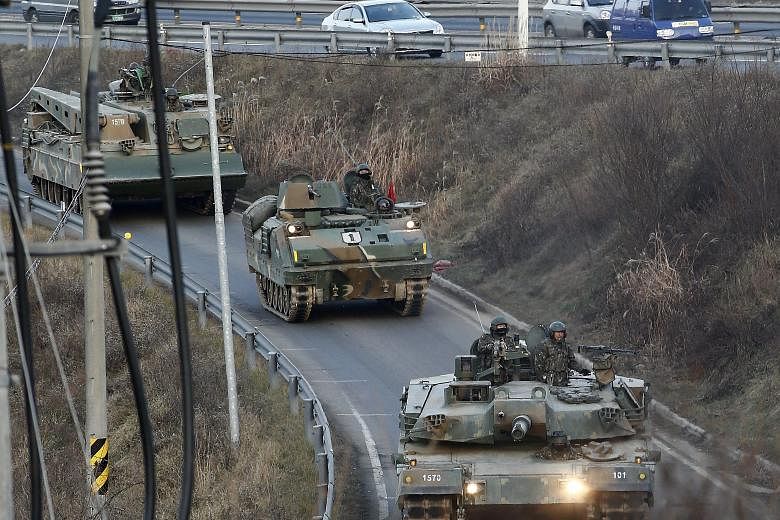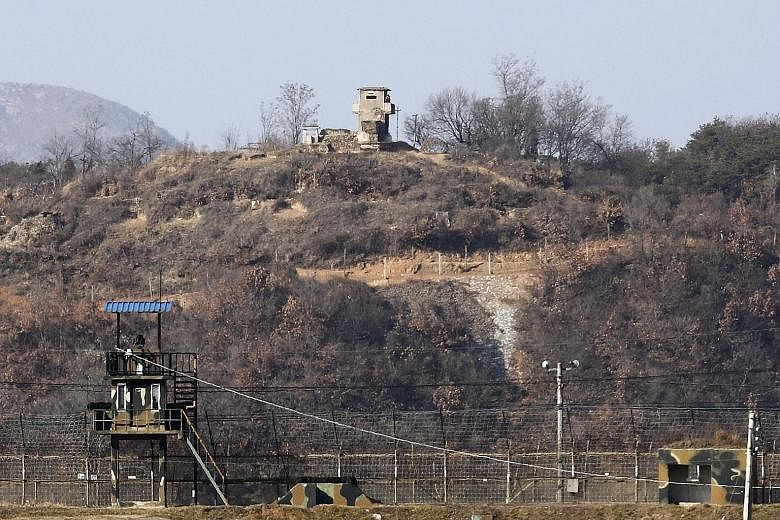South Korea gave North Korean leader Kim Jong Un an earful yesterday, blasting its brand of propaganda mixed with K-pop across the border to show its displeasure with Pyongyang's test of what was claimed to be a hydrogen nuclear device on Wednesday.
The move - definitely not music to Mr Kim's ears on his supposed 33rd birthday yesterday - is expected to escalate tensions as Seoul sought closer collaboration with Beijing and Tokyo to punish Pyongyang's recalcitrance.
President Park Geun Hye urged the people to stay united while South Korea discussed with world powers how best to deal with the North's latest provocation.
Seoul secured defences near the high-powered loudspeakers, which were turned on at noon at 11 locations along the inter-Korea border.
"The nuclear test is pushing North Korea towards greater isolation and turning it into a land of death," a host said in the broadcast.
What may seem to be mere words and music have proved to be a surprisingly effective form of psychological warfare against North Korea, forcing Pyongyang to the negotiating table the last time it was deployed last year.
Produced by the South Korean military's psychological department, the broadcast, named Voice of Freedom, can travel as far as 24km at night and be heard by frontline troops and border town residents in the North.
In a reclusive country where information is tightly controlled and shaped by the leadership, the broadcast provides a rare source of news and pop music, as well as propaganda messages that are viewed as a threat to the morale of the soldiers and civilians.
The broadcast is "deadly poison" to the communist system as it delivers truths about how North Korea's economic and social development lag far behind that of South Korea, China and the rest of the world, said Dr Kongdan Oh, a researcher at the Institute for Defence Analyses.
"It is not actually propaganda but truth about the reality today. The North Korean military deployed near the demilitarised zone will listen to the loudspeakers and they can learn about Kim Jong Un, South Korean music and lifestyle.
"Kim is deadly worried about this more than anything else," she said.
According to South Korea's Defence Ministry, the broadcast contains four main themes - exposing the Kim regime, highlighting the economic, social and political disparities between the two Koreas, promoting democracy, and calling for unification.
It will be played at irregular times of the day and night.
North Korea has not reacted yet, but some observers expect Pyong- yang to retaliate with its own loudspeaker broadcast or fire warning shots like last year.
First introduced in 1962, the loudspeakers went into operation in August last year in reaction to a North Korean land mine attack that maimed two South Korean soldiers.
Anti-Pyongyang messages were played for 15 days, driving Mr Kim to threaten war at first before he eventually relented and initiated talks to end the military stand-off.
North Korea's announcement on Wednesday that it has conducted a successful hydrogen bomb test drew international condemnation amid doubts of its credibility. Tests and studies are being carried out by the US and other parties to confirm if Pyongyang does indeed possess such a powerful nuclear device.
The provocation has drawn Seoul and Tokyo closer, with South Korean Defence Minister Han Min Koo speaking with his Japanese counterpart last night to discuss how to deal with North Korea.
The US has also urged China to exert more pressure on North Korea, as the Asian power is deemed as Pyongyang's economic lifeline.
US Secretary of State John Kerry and experts alike have faulted China for failing to rein in North Korea, a charge that the Chinese Foreign Ministry rebutted yesterday, saying the key to resolving North Korea's nuclear issue "does not lie in China".
South Korea resumes loudspeaker propaganda broadcast against North Korea. http://str.sg/ZHGN




